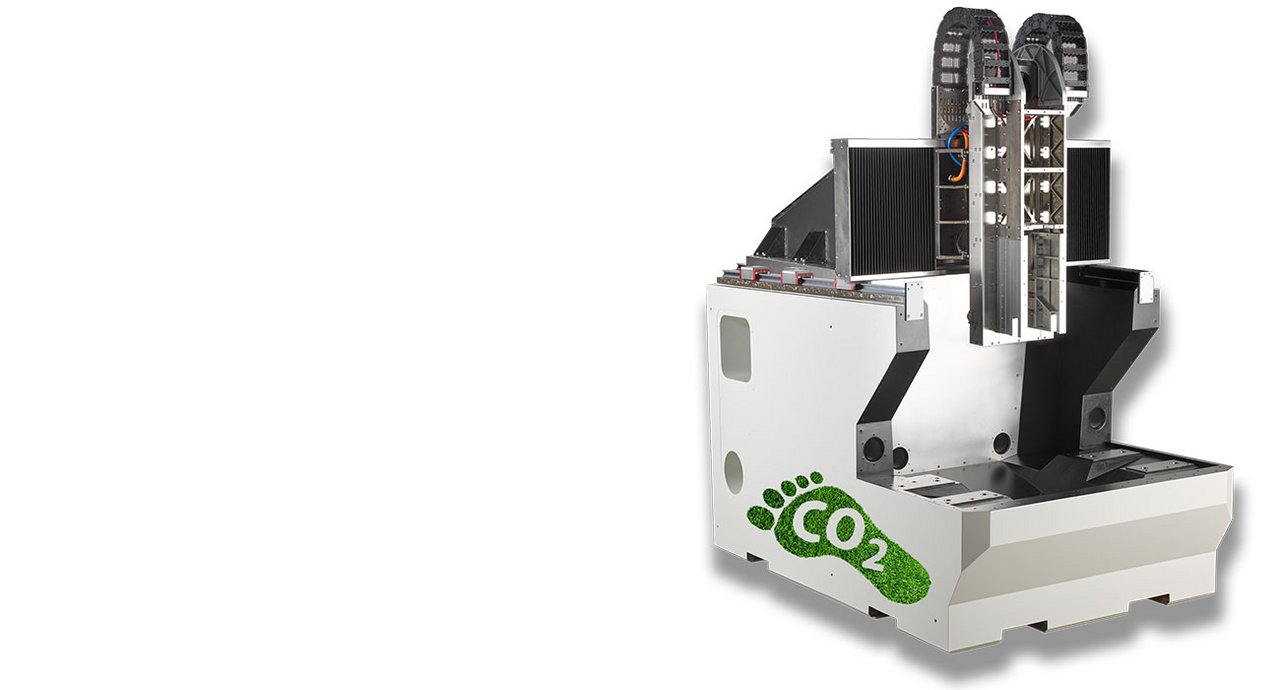
RAMPF Mineral Casting: 4.5 Times Lower CO2 Emissions Than Gray Cast Iron
The carbon footprint of EPUMENT® mineral casting developed and produced by RAMPF Machine Systems has been determined. The high-performance machine bed and construction material has a CO2 emission value that is 4.5 times lower than that of gray cast iron.
Our company has always stood for innovation and sustainability. What we always suspected has now been confirmed – the CO2 footprint of EPUMENT® Mineral Casting is significantly better than that of other materials
Marc Dizdarevic, CEO of RAMPF Machine Systems, points out.
The company commissioned an external, independent agency to calculate the carbon footprint of EPUMENT® mineral casting. The result – with approximately 360 kg CO2e/t, RAMPF mineral casting is significantly superior to other machine bed materials.
In comparison to gray cast iron its emissions are more than 4.5 times lower:
For a machine bed weighing 10 metric tons, using mineral casting instead of gray cast iron implies a saving of 12,940 kg CO2e/t.
Kacper Lasetzki, Sales Manager at RAMPF Machine Systems:
Emissions will be decisive for the pricing and thus competitiveness of products. Key points are the climate pact of the German government and the European Green Deal. With EPUMENT® we offer machine builders an ecologically as well as economically competitive alternative to conventional machine bed and construction materials.
The reasons for the outstanding carbon footprint of EPUMENT® Mineral Casting:
- EPUMENT® is cold cast into molds and cures at room temperature. Casting gray cast iron, on the other hand, requires a great deal of energy to heat the melt to 1,150 °C. As a result, manufacturing mineral casting requires up to 75 percent less energy than cast metal.
- The casting accuracy of mineral casting is extremely high – to the tenth of a millimeter. Combined with RAMPF’s ultraprecise inhouse replication technology, the need for transportation to external processors and the use of finishing machines is minimized; this reduces CO2 emissions even further.
- RAMPF mineral casting is more than 90 percent made up of naturally occurring minerals and stones, along with a binding agent based on epoxy resin, meaning it can be disposed of or recycled as normal construction waste.
Kacper Lasetzki:
Mineral casting is inherently environmentally friendly; we have no need to greenwash our material. With EPUMENT® we meet both the needs of our customers for sustainable materials and the demands of society and politics regarding recycling and reuse.
Due to its almost unbeatable damping properties, outstanding rigidity, and temperature stability, EPUMENT® mineral casting is used in numerous industries worldwide, including electronics, semiconductor, and solar module production, laser, woodworking and textile machines, measuring, testing and inspection technology, and machine tool manufacturing.
